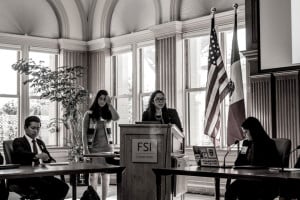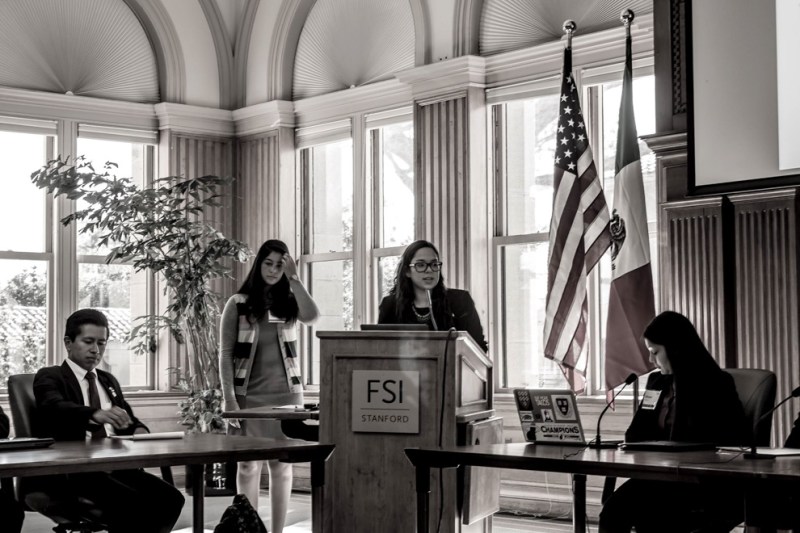
This past weekend saw the conclusion of the third annual Fall Summit of the U.S.-Mexico Forum for Cooperation, Understanding and Solidarity (FoCUS) at Stanford, thereby drawing an end to the year’s program. The program, jointly developed by the Instituto Tecnológico Autónomo de México (ITAM) and Stanford, convenes student delegates and policy makers semi-annually in each of the two countries.
“Student delegates have known each other for years now,” said Yasmin Bashirova ’17, financial director of the event. “The Forum has grown quite institutionalized at this point and truly represents a friendship that will continue to grow.”
During the four-day event at Stanford, 30 students from universities across the United States and Mexico gathered to strengthen and expand an alliance of cross-national collaboration.
“Building friendship is the most important part of the conference,” said Nathaniel Buescher ’17, president of FoCUS at Stanford. “Although you may not necessarily agree with another [delegate’s] point of view, you become more receptive and compromising to someone you know and spend time with.”
This year’s agenda, entitled “Change in Conversation,” brought up themes of migration, energy and social change.
“It’s not only related to the economy,” Buescher said. “The identity of a region is influenced by energy, especially when it is shared over a border, which gives rise to water issues, for example.”
On the second day of the forum, University of San Francisco professor and Mexican immigrant Kathleen Coll delivered a speech about social activism and domestic workers’ rights. According to Buescher, Coll showed that issues of migration, social activism, labor rights, gender equality and racism in the workplace are profoundly linked.
“The issues discussed during the meeting affect both countries and cannot be treated separately,” said Alejandra Salazar ’17, media director of the Stanford FoCUS organization.
“It is inspiring how the network has formed in a matter of years and is going to keep growing and growing,” she added.
The organization’s official agenda explained that the summit seeks to sponsor the development of informed leaders through a series of talks and meetings with the most influential policy-makers in U.S.-Mexico affairs. Attendees also participated in roundtable discussions and workshops addressing major issues faced by both countries.
“During the April Summit in Mexico, groups from three to five students are created with both American and Mexican delegates,” Buescher said. “They come up with a proposal, policy legislation or idea that they bring back to their respective homes. Following three or four months of work, they present their project to peers and leaders in November at Stanford.”
Buescher added that these projects give student delegates “real world experience across language barrier, geographical distance and time zones” to prepare them for future responsibilities.
FoCUS was founded in 2012 by Jorge Olarte ’13 and Alejandro Navarro, a student from ITAM University, to create ties and sponsor the growth of political and social relations between the next generation of leaders in Mexico and the United States. Buescher explained that he hopes to make the future events public or to give Stanford students access to the conferences.
“The Forum has grown a lot. It’s only our third year,” he said.
Contact Chloé Hamilton at chloeh ‘at’ stanford.edu.
